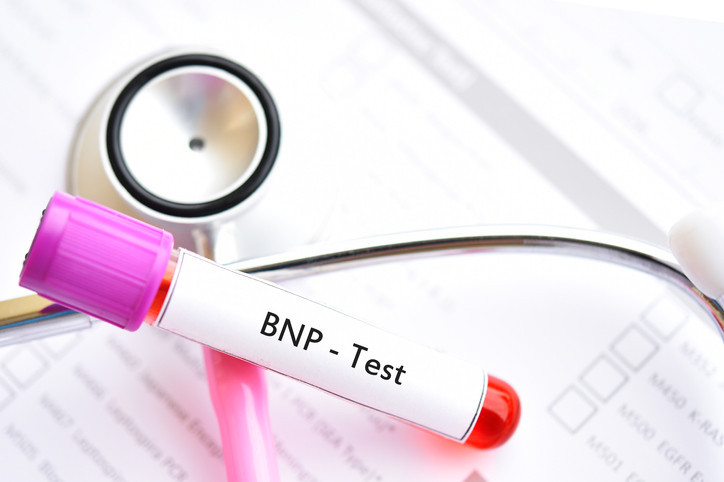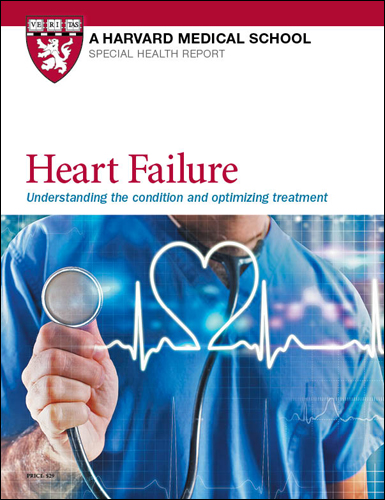BNP: An important cardiac test

B-type natriuretic peptide (BNP) belongs to a family of protein hormones called natriuretic peptides. These natriuretic peptides have an important role in regulating the circulation. They act on blood vessels, causing them to dilate, or widen. They also work on the kidneys, causing them to excrete more salt and water. In addition, the natriuretic peptides reduce the production of various hormones that narrow blood vessels, boost the heart rate, or affect fluid retention; examples include adrenaline, angiotensin, and aldosterone.
The net effect of natriuretic peptides is to promote urine excretion, relax blood vessels, lower blood pressure, and reduce the heart's workload. They are part of the body's natural defense mechanisms designed to protect the heart from stress. And they surge into action when they are needed most, when the heart itself is under siege.
BNP in heart failure
BNP helps the body compensate for heart failure (HF); measurements of BNP help doctors diagnose and treat this serious condition.
Heart failure results when the heart becomes too weak or too stiff to pump normally. The most common causes are coronary artery disease and hypertension. In other cases, heart valve disease is to blame. Less often, HF can also be caused by heart muscle diseases (cardiomyopathies) from a viral infection, over use of alcohol, or certain genetic disorders.
The heart's job is to collect blood from the veins, then pump it through the arteries to all the body's tissues. In HF, the weakened or stiff pump is not up to the task; the tissues don't get all the oxygen-rich blood they need, and blood backs up in the lungs, abdomen and legs.
The lack of sufficient tissue oxygen makes people with heart failure feel weak and tired. Skeletal muscle function suffers, making it hard to get around. Kidney function may be impaired, sometimes permanently, adding to the fatigue and complicating treatment. Deprived of its full complement of blood, the brain can slow down along with the rest of the body, producing lethargy, confusion, and even grogginess.
The backup of blood produces even more symptoms. Shortness of breath is a common complaint. At first, it occurs only during physical exertion, but advanced HF makes breathing a chore even at rest. Patients with heart failure often need to sleep on extra pillows because they get terribly winded if they lie flat; they can even be awakened by shortness of breath so severe that they have to sit bolt upright. Sometimes the most prominent symptom is coughing or wheezing. Also "wet" lungs are more susceptible to pneumonia.
As fluid builds up, it can accumulate elsewhere in the body. Because gravity draws fluid downward, the feet and legs often become puffy during the day, only to slim down in bed at night. In addition, fluid can back up in the liver, abdomen and even the scrotum in men.
Diagnosing heart failure
Doctors can often diagnose HF on clinical grounds, confirmed by simple studies like chest x-rays, EKGs, and routine blood tests. But mild HF can be tricky to recognize, and various lung diseases, liver diseases, and kidney diseases can mimic HF. So, when doctors suspect HF, they usually order a BNP blood test and an echocardiogram to confirm the diagnosis and assess its severity.
In heart failure, the heart chambers are stressed causing them to produce and release extra BNP, which pours into the bloodstream. A simple, accurate, inexpensive tests can measure BNP in blood samples.
BNP is very helpful in diagnosing HF. A normal BNP level makes HF less likely, freeing doctors to hunt for other conditions that may be causing shortness of breath or fluid retention. Slightly high BNP levels are less conclusive; but patients with suspected HF and very high BNP levels can get started on therapy with less delay.
BNP is also helpful in determining the outlook for patients with heart failure. In general, the higher the level, the worse it is. Also, BNP is very helpful in guiding the treatment of HF. Effective therapy reduces the backup of blood in the heart. The heart chambers get smaller, and as the muscle cells recover from being stretched, they produce less BNP.
Image: jarun011/Getty Images
Disclaimer:
As a service to our readers, Harvard Health Publishing provides access to our library of archived content. Please note the date of last review or update on all articles.
No content on this site, regardless of date, should ever be used as a substitute for direct medical advice from your doctor or other qualified clinician.













